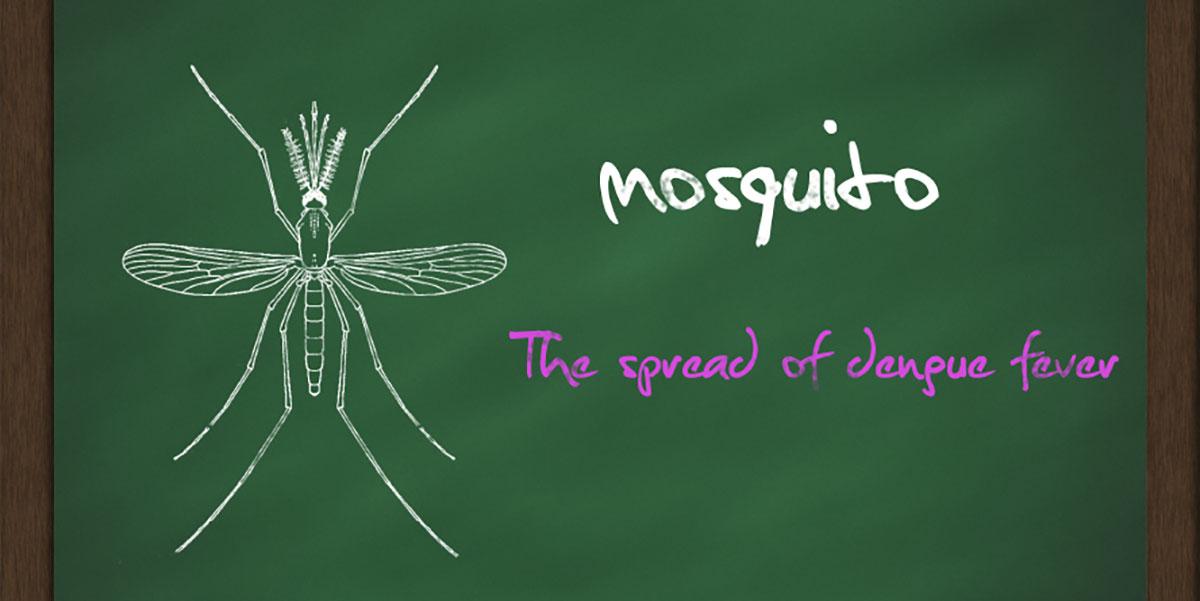
Look for these symptoms:
• High grade fever (104° F)
• Body ache
• Joint or bone pain
• Severe headache
• Eye pain,
• Swollen lymph nodes
• Rash and in some cases mild bleeding from gums or nose
Risk factors:
• Living or traveling in tropical areas
• Prior infection with dengue fever virus.
KEY FACTS
▪ Dengue is a viral infection spread by mosquitoes causing a severe flu-like illness and, sometimes causing a potentially lethal complication called severe dengue haemorrhagic fever. Therefore, close monitoring of platelet count while undergoing treatment is important.
▪ The Aedes aegypti mosquito is the main vector that transmits the viruses that cause dengue. The viruses are passed on to humans through the bites of an infective female Aedes mosquito, which mainly acquires the virus while feeding on the blood of an infected person.
▪ Victims of dengue often have intense joint and muscle pain.
▪ Complications arise due to depletion of cellular components in the blood which prevent normal clotting.
Prevention
• Adapt protective measures/ Avoid mosquito bites
o Use of Mosquito repellent products.
o Wearing protective clothing; loose fitting full sleeved shirts and pants or similar dresses.
• Favorable environment for mosquito breeding
o Tightly cover water containers, wells and water storage tanks.
o Prevent stagnation of water by topping up all defective ground surfaces, disposal of plastic containers, automobile tyres etc safely.
• Create awareness about the spread of dengue in your locality.
• Protect the infected person from further mosquito bites to avoid transmission of the disease.
Treatment
• Take adequate rest.
• Consume plenty of fluids to avoid dehydration.
• Keep body temperature below 102º F. Take paracetamol as per prescribed by doctor.
Prevention
•Don't apply mosquito repellent on your palms, or near your eyes or mouth. ALWAYS read instructions before using repellents, especially those pertaining to infants, breast-feeding and mothers pregnant women.
• Don't wear tight clothes, for mosquitoes find it easier to bite through tight-fitting garments.
• If you are using mosquito repellents, don't use them on children below two months of age. For children older than two months, use insect repellents containing 10% DEET.
• Avoid activities in areas with lots of mosquitoes and going outdoors at dawn and dusk when mosquitoes are most active.
Treatment
• Avoid use of NSAIDs (nonsteroidal antiinflammatory drugs) like aspirin, ibuprofen and steroids as they can lead to complication of severe bleeding.
• Do not wait for symptoms to worsen. Immediately, consult a doctor. It is crucial to quickly get treatment in case of complications.